Does Switzerland produce half of all the food it needs?
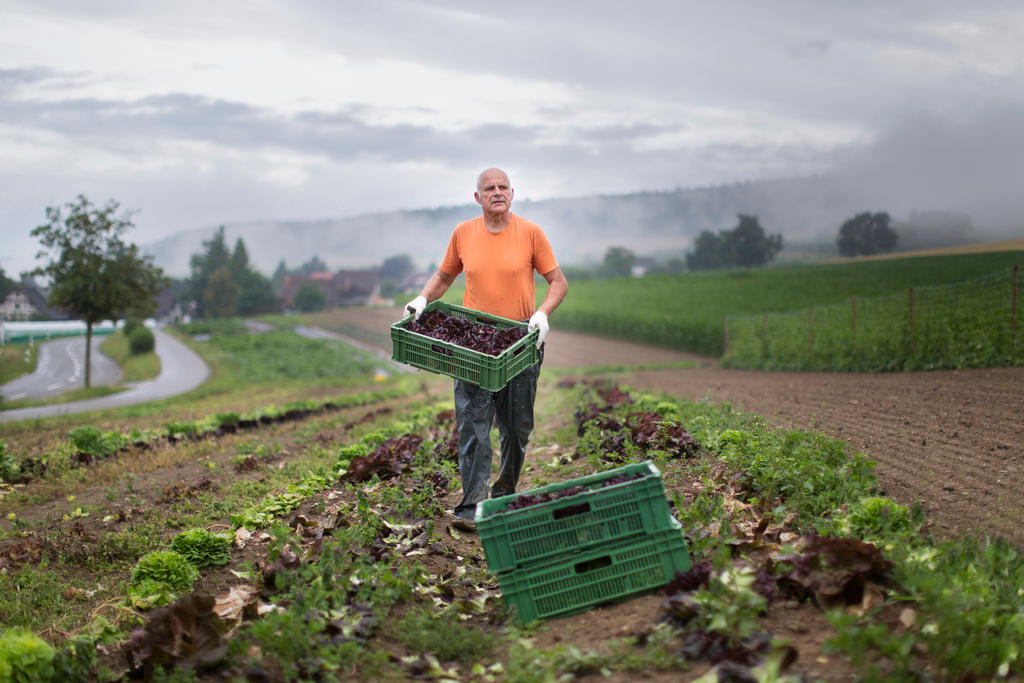
So says the country’s home affairs minister, as the government tries to convince voters to reject a popular initiative calling for greater ethical standards in food production. Is he right?
The Swiss will decide this month whether to approve changes to the country’s agricultural policy.
On the ballot are the Green Party’s Fair Food initiative calling for food that meets stricter ecological and social standards of production, and a second initiative by a farmer’s union, dubbed Sovereign Food, aimed at boosting the country’s production of foodstuffs.
In coming out against the Fair Food Initiative, the government saysExternal link that Switzerland produces half of the food it needs and that these products must meet high standards of safety, quality and sustainability under existing regulations. It also argues that extending the same standards to food imports, as the initiative demands, would put Swiss policy at odds with the terms of its international trade agreements. Home Affairs Minister Berset also insistsExternal link that there is enough transparency concerning imported foods, which are clearly labelled so consumers can decide for themselves whether or not to buy them.
The government is asking voters to reject both projects. In his pitch, the home affairs minister, Alain Berset, says the Fair Food initiative is unnecessaryExternal link, pointing out that Switzerland itself already produces about half of its food requirements – an argument that’s also relevant in the case against the Sovereign Food initiative. Does his claim stand up to reality?
Yes, but …
According to the Federal Agriculture OfficeExternal link, Switzerland’s gross self-sufficiency rate in 2015 was 59%. The degree of self-sufficiency is defined as the ratio of domestic production to total domestic consumption. With imported animal feed taken into account, the net level of self-sufficiency was 51% that year.
It is therefore true that, when all foodstuffs are considered together in terms of energy supply, the country today produces half of its overall food supply, including unsold or spoiled food.
But a closer look at the data reveals major differences across products. The country has been able to produce almost 100% of its animal foodstuffs for years, yet has managed only about 40% self-sufficiency for plant-based foods, a rate that fluctuates year on year as harvests are highly weather-dependent.
Self-sufficiency in animal products is also relative. When imported feed is factored into the calculation, the rate drops below 80%External link.
A further statistical breakdownExternal link shows additional variations in the share of domestic production in overall food consumption: in 2016 Swiss firms accounted for 86% of meat production but only 2% of fish stocks. The country is strong in milk production, producing more than it consumes (116%). But it can cover just a quarter of its fruit requirements, and roughly half of its consumption of eggs and vegetables.
Figures indicate a mere ratio
Another factor to keep in mind is that the calculation of self-sufficiency does not take into account what proportion of Swiss-produced foodstuffs is actually consumed domestically and how much of it is exported or compensated by imports.
The degree of self-sufficiency merely indicates a theoretical relationship between domestic production and total domestic consumption – it does not reflect reality.
The reality is this: Switzerland imports more food than it exportsExternal link. In fact its food imports per capita are among the highest in the world, due in large partExternal link to its high population density and the relatively small area available for cultivation.
Major imports include large quantities of staple foodsExternal link such as rice, durum wheat, palm oil and soya, which is used as animal feed. Imports are especially significant in years of poor grain or potato harvests.

This reliance on imports is relevant because part of Berset’s argument against the Fair Food initiative is that consumers have freedom of choice – they can decide themselves whether they want to buy imported foods that have been produced under poorer ecological or social conditions.
But since staples like rice or wheat are largely imported, consumers cannot always get around foreign products and switch to Swiss-made foods.
Many ready-made foods today are also highly processed and contain a long list of ingredients, some of which can only be imported. They are products that Switzerland cannot produce itself for reasons related to climate – palm oil, which is used in many processed foods, is one example.
The verdict
In theory at least, Berset is right to say that Switzerland produces about half of all the food it needs.
But the country’s rate of self-sufficiency varies greatly depending on the type of food in question. And the data itself merely suggests a theoretical ratio rather than defining precisely the relationship between domestic production and consumption.
The Swiss centre of excellence for agricultural research, AgroscopeExternal link, has examined what might happen if the country could no longer trade with other countries. It concludes in a study that Switzerland could be self-sufficient in the case of an emergency: the agricultural land available could supply food up to the equivalent of 2,340kcal (9,790KJ) per inhabitant (the recommended daily energy intake is 7,500-10,500KJ). But to achieve this, agricultural production would have to be reorganised, and the Swiss would need to make changes to their diet. Pork, poultry and eggs would be a rare treat and the population would instead be eating more baked goods and potatoes.
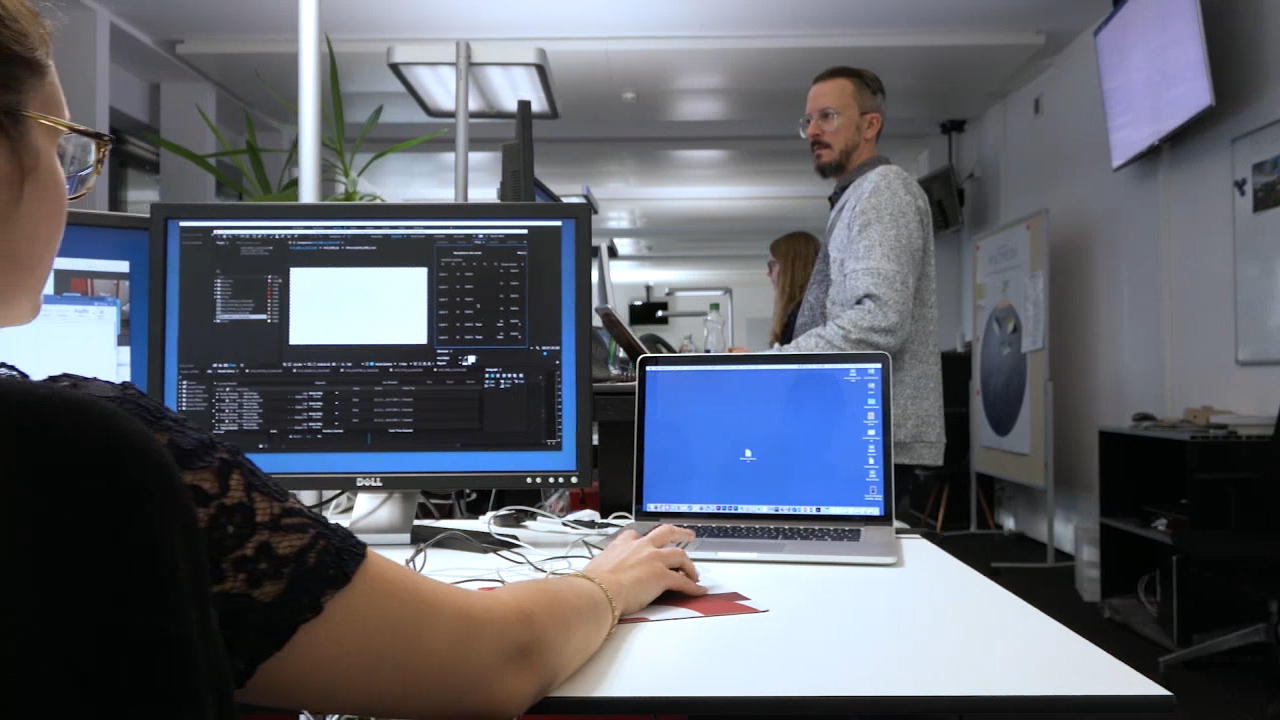
More
Fact checks by SWI swissinfo.ch: How we work
Translated from German by Geraldine Wong Sak Hoi

In compliance with the JTI standards
More: SWI swissinfo.ch certified by the Journalism Trust Initiative



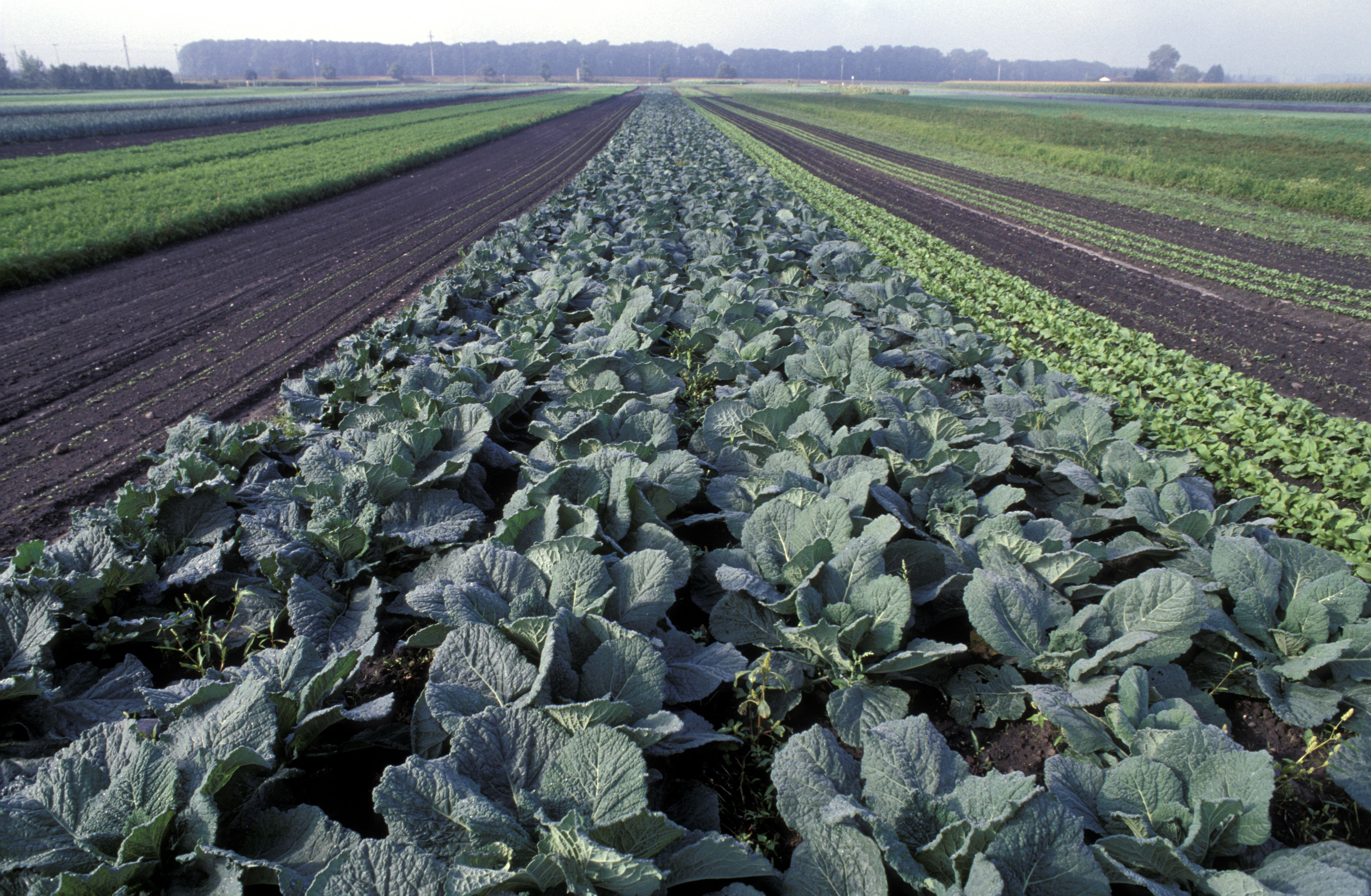
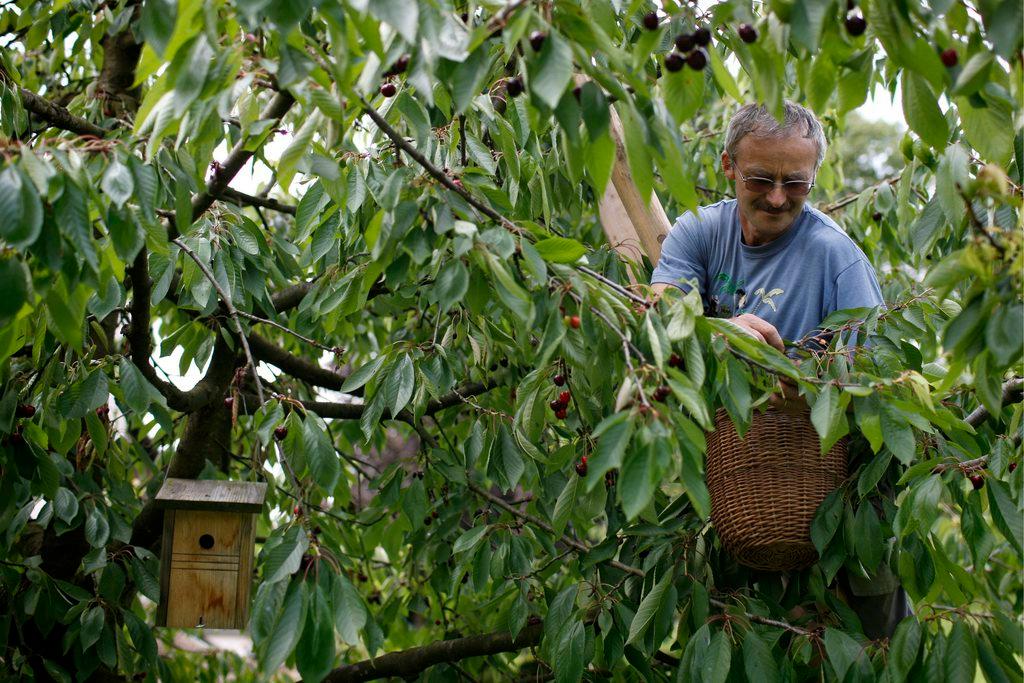
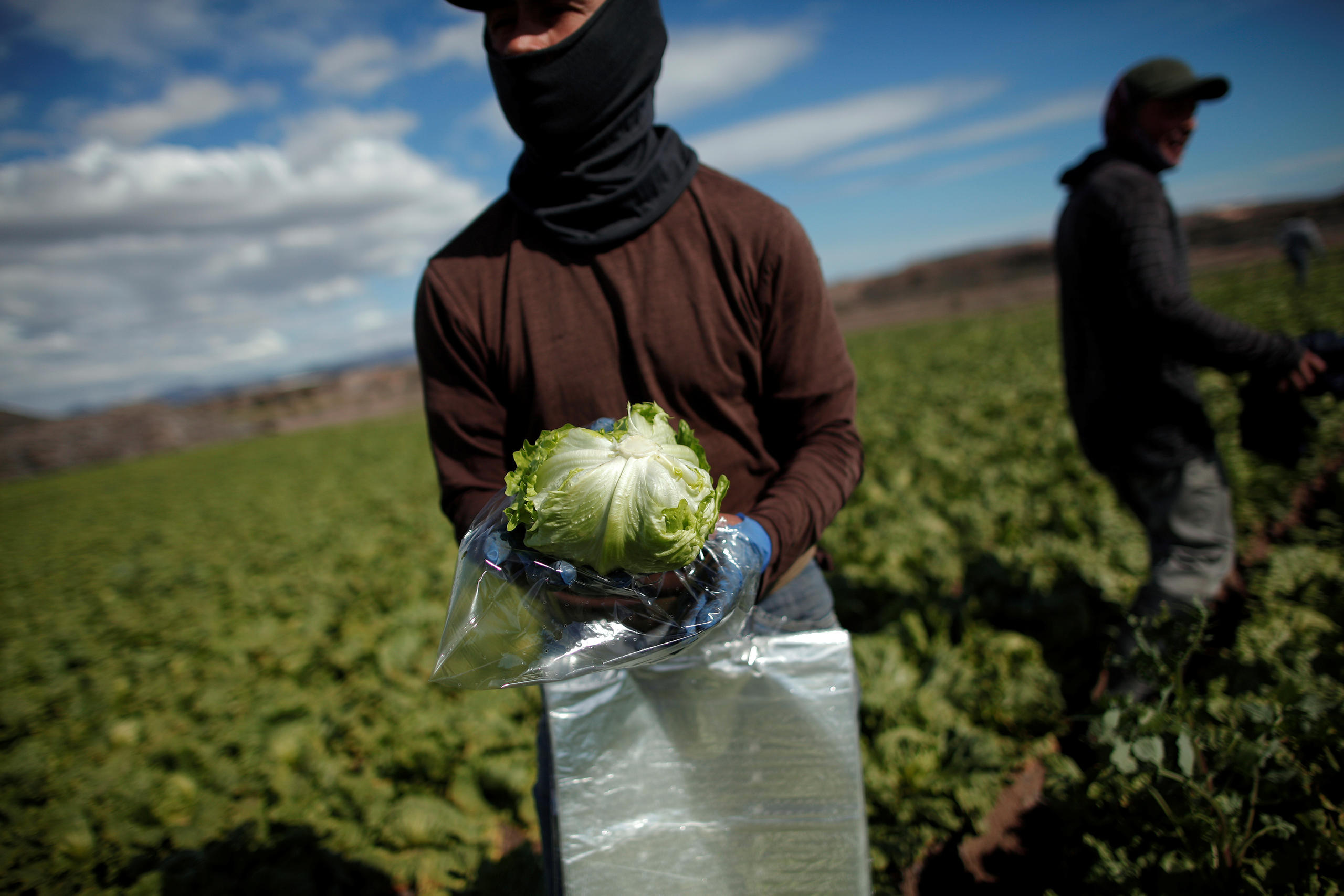
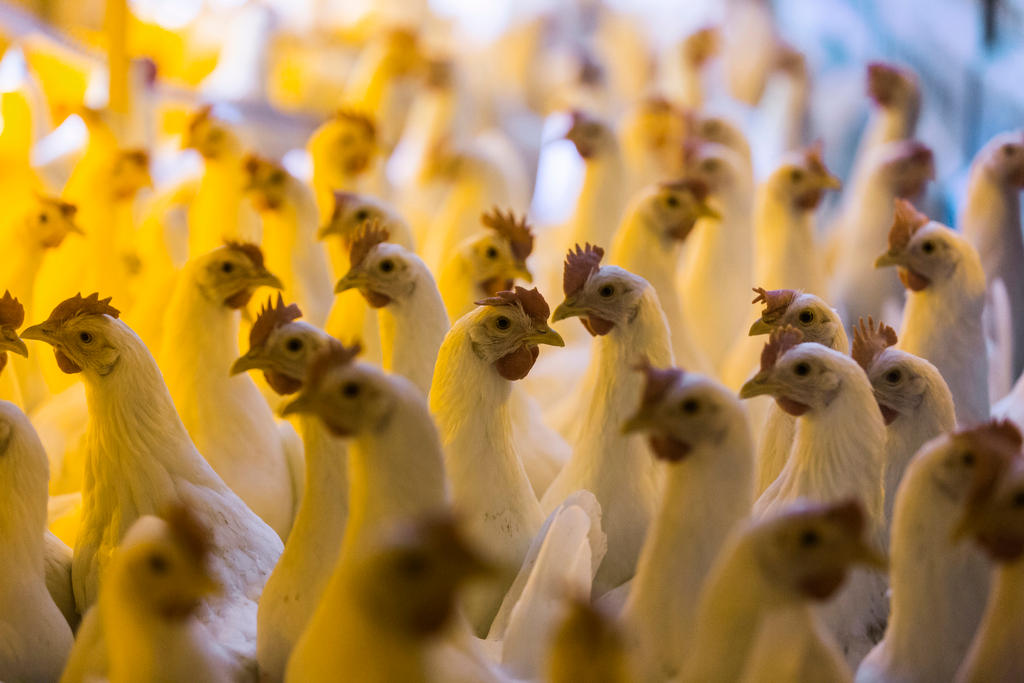
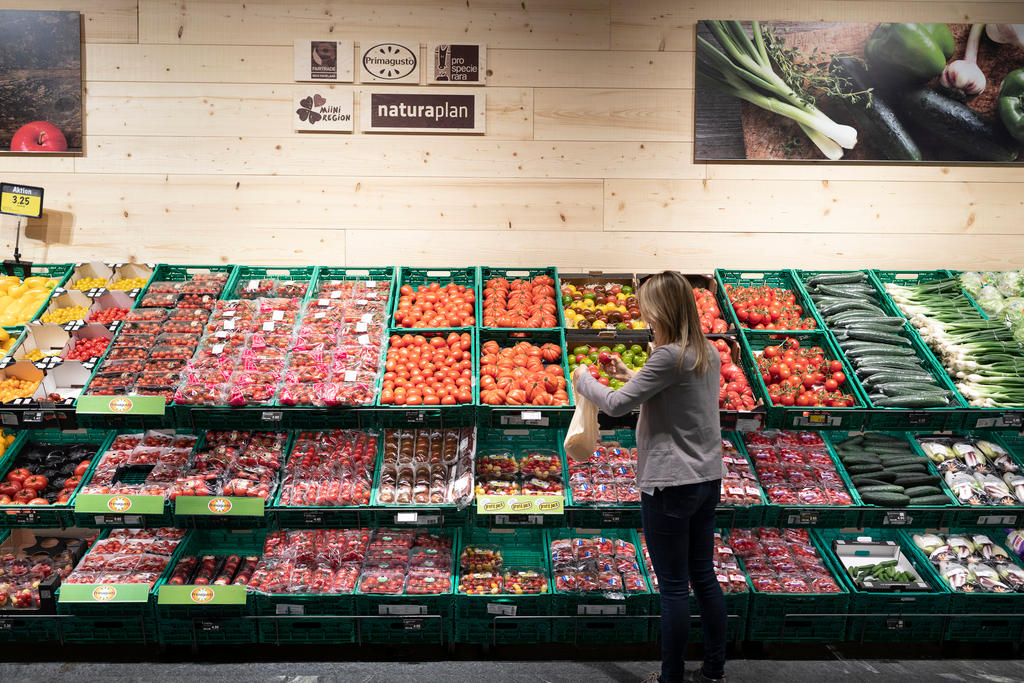
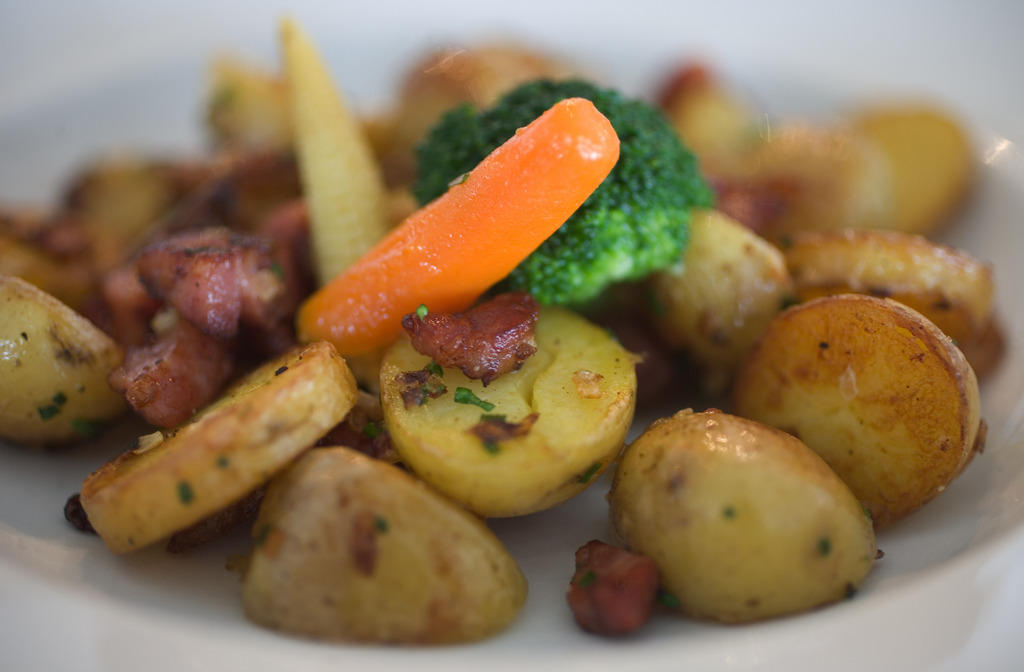
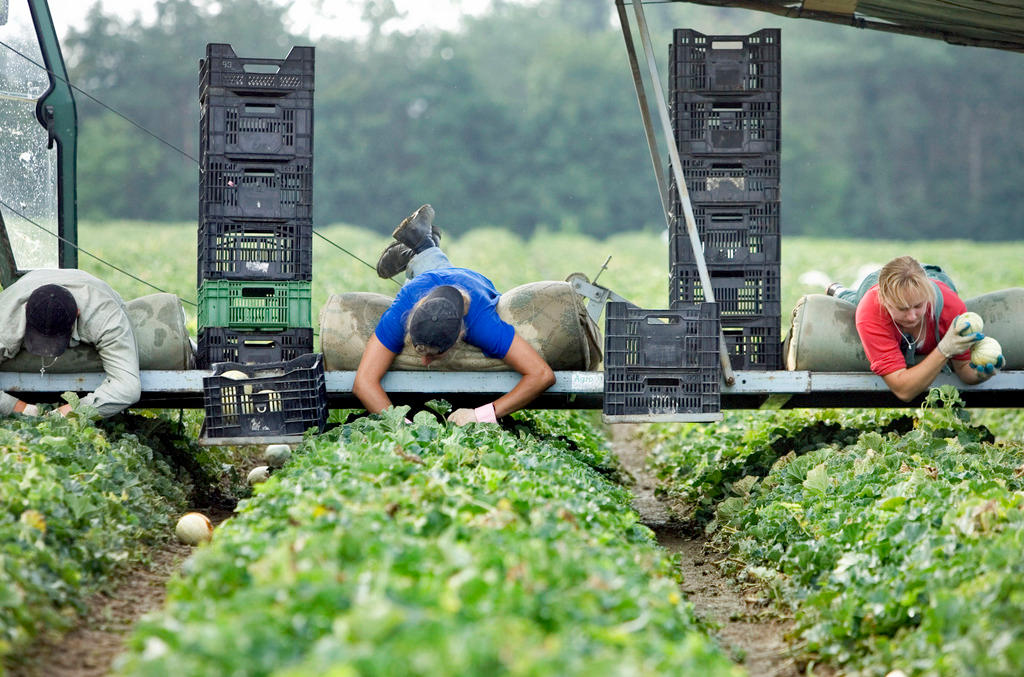
You can find an overview of ongoing debates with our journalists here. Please join us!
If you want to start a conversation about a topic raised in this article or want to report factual errors, email us at english@swissinfo.ch.